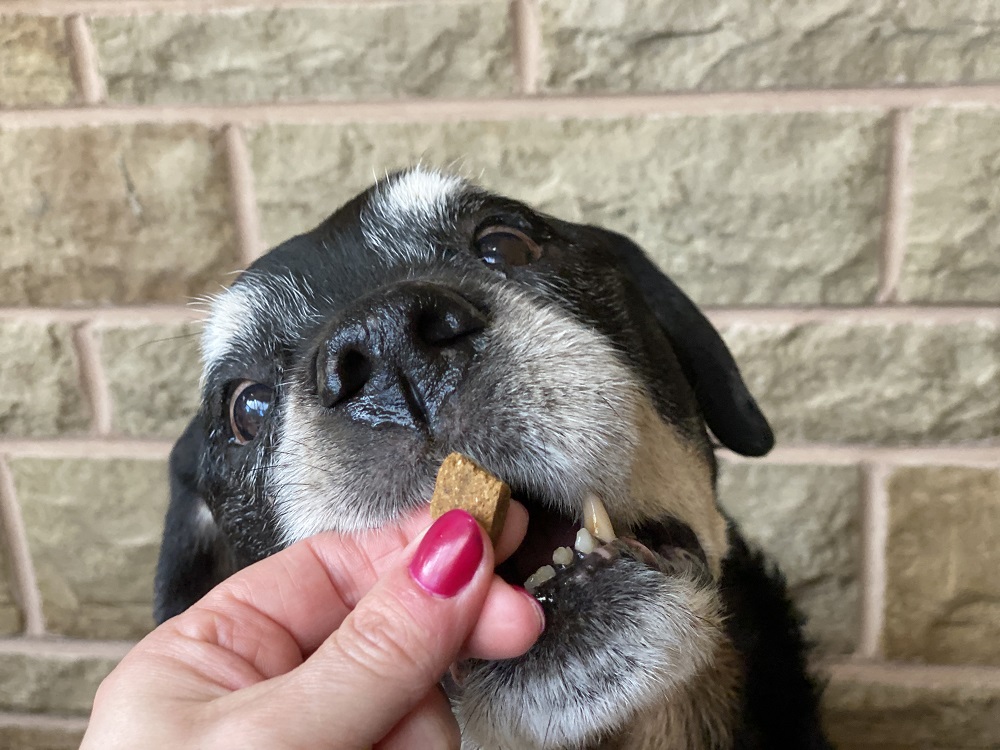Are Grapes Safe For Dogs to Eat?
The wrath of grapes was, unfortunately, all too familiar for many dogs and cats in 2008 as a US based pet insurance firm released data showing how many toxic claims it had dealt with last year. For many dog owners, they are unaware of which foods can prove toxic to dogs until it’s too late.
VPI pet health insurance analyzed the more than 400 claims it received last year for toxic plant ingestions to find which plants and plant products proved most likely to poison pets. Raisins and grapes topped the list, followed by mushrooms and marijuana. In 2008, the average amount claimed for plant poisoning was $427 (approx £300).
Grapes Eaten by Dogs Top Vet Claims
1. Raisins/Grapes
2. Mushrooms
3. Marijuana
4. Lily
5. Walnuts
6. Onion
7. Sago Palm
8. Macadamia Nuts
9. Azalea
10. Hydrangea
“Almost all plant poisonings in pets can be prevented, but prevention depends on knowledge, thus it is important for pet owners to become familiar with which items can be toxic if ingested,” said Dr. Carol McConnell, vice president and chief veterinary medical officer for VPI.
“Prevention is a simple matter of keeping these hazards out of a pet’s environment. To avoid plant poisonings, try not to give a dog table scraps that contain raisins, onions or nuts, and make sure that a new pet is introduced to a backyard free of sago palms, wild mushrooms or other toxic plants.”
Pet owners have good reason to take the threat of grape/raisin ingestion seriously. Even in low doses, ingestion can place pets at risk for acute renal failure. Symptoms include anorexia, lethargy, depression, vomiting, diarrhea and abdominal pain.
The exact cause is unknown, but some experts think that there may be a toxic component in the skin of the grape/raisin. Treatment by a licensed veterinarian may include inducing vomiting and/or administration of intravenous fluids. Immediate treatment is essential.
The mushrooms most responsible for poisoning pets are the common “backyard” variety. These often grow in grassy places, especially after a heavy rain, and contain toxic components that disrupt the functioning of the digestive tract and liver. If ingested, mushrooms can cause salivation, dehydration, vomiting, diarrhea, and liver failure.
The best way to prevent an accidental ingestion is to regularly scan a yard, or any other grassy area a pet may occupy, and pull wild mushrooms up when they appear.
Most mushroom ingestion claims were submitted in late summer and fall. In fact, half of the plant poisoning claims received in October were due to mushroom ingestion. In addition to the top 10 plant poisonings, VPI received claims for ingestion of the following plants or plant products: delphinium, crocus bulbs, hemlock, rhododendrons, gladiolus, tea tree oil, poison ivy, nightshade, tobacco, poinsettia, oleander, brunfelsia, hibiscus, almonds, scarlet pimpernel, potpourri and kalanchoe. Nearly all claims for lily ingestion were submitted for felines.
While not a plant or plant product, fertilizer is another garden variety toxin often ingested by pets. The strong smell of fertilizer can motivate dogs to taste or eat it. Unfortunately, some fertilizers contain organophosphate pesticides which impair the nervous system. In 2008, VPI received 60 claims for organophosphate poisoning. Pet owners can avoid accidents involving fertilizer by not using pesticide-containing fertilizers in an area frequented by pets. As with plant poisonings, prevention of fertilizer poisoning is primarily a matter of observation and knowledge of a pet’s environment.
Grapes are favourite fruits of humans but these innocuous looking fruits can kill a dog. No one really knows why dogs should not be allowed to eat these red, green and black sweet fruits. Studies conducted on grape toxicity have verified that it was not caused by fertilizers or pesticides. Although the toxin in grapes is unknown, a twelve month study period has verified that grapes have indeed caused renal failure. Dogs affected by grape toxicity will be in pain due to inability to pass urine thus dogs that do not respond well to treatment are oftentimes put to sleep.
Question: Can My Dog Eat Grapes?
Humans love grapes fresh fruits or as raisins as apart from being delicious grapes are rich sources of vitamins. Grapes are good source of antioxidants. Free radicals commonly known as oxidants are the cells “developed” from humans unhealthy living . Alcohol, pollution, unhealthy foods, too much sun are the allies of oxidants. These oxidants are the reasons why people suffer from various health conditions like cancer, heart diseases, arthritis and many other health concerns.
Grapes are good sources of antioxidants that prevent the oxidants from causing more harm to the healthy cells of the body. Now many people are aware of this fact but nevertheless, grapes are consumed in large quantities. Because of the low calorie content, people conscious about their figures would chose to snack on grapes as the fruit will not add inches to the waistline.
The potential fatal effect of grapes to dogs is a recently discovered fact. Before pet owner were warned about the harmful effects of grapes to canines, this fruit as well as raisins were used as treats when training dogs. Scientists and pet owners are puzzled as the toxicity of grapes do not affect all dogs. Dogs that eat bunches of grapes will go scot free while some dogs that ingest a few will start to vomit and show other signs of toxicity. The toxicity of chocolates is dose dependent, this is not so with grapes.
A dog that was affected by the toxic contents of grapes would start to show a change in behavior. The dog will be hyperactive and then it will be depressed and become lethargic. The dog may vomit and have diarrhea. Immediate treatment is necessary to save the life of the pet thus it must be rushed to the vet stat. Because the kidneys can no longer perform its function of filtering toxins, the dog will suffer from renal failure that can result to the death of the dog
Sarah’s Dogs has more answers to why dogs cannot eat grapes as well as information about first aid for dogs.
Worth a look…
Dog flea advice and tips.
Cushing’s disease in dogs (free report)
Enter your email and never miss out on receiving our best articles:








2 comments
Thanks for the great article. In 2008 the “Dogs In Canada” Magazine published an article called the “Grapes of Wrath”. That was the first time I had heard that grapes and raisins were toxic to dogs. I am amazed that vets are not telling their clients this information as part of their conversation they have when advising us to have our pets teeth cleaned, vaccine schedule, heart worm prevention etc. I hope many people read this article as it could very well save a dogs life.
Thanks
Thanks for the post. I like giving my dogs fresh foods as treats but I’m not always sure which are toxic. Now I know…no grapes!